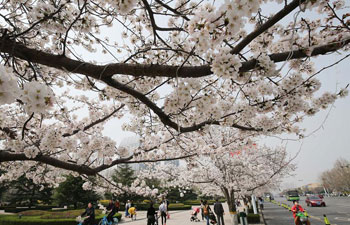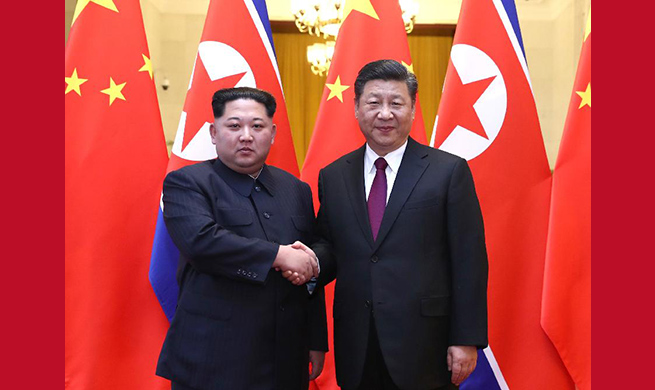CHICAGO, March 28 (Xinhua) -- While praising China's success in reducing pollution, a University of Chicago (UChicago) professor said Wednesday that further pollution reductions are necessary in China.
Michael Greenstone, director of Energy Policy Institute at the University of Chicago, told Xinhua in an interview that the measures taken by the Chinese government over the past four years have been extraordinarily successful in reducing air pollution. "I'm unaware of any country achieving such large reductions in pollution in such a short period of time."
At the same time, "substantial further reductions are necessary to bring many parts of China into compliance with the country's own particulates standards or, more ambitiously, with World Health Organization standards," Greenstone said.
Greenstone holds that the challenges China faces in the next step is to find the right balance between economic growth and environmental protection. China "has taken a top-down approach to this challenge by generally directing emissions reductions in specific industries and regions, which is a costly approach."
"The best way to obtain further gains, while continuing to facilitate robust economic growth, is to rely more heavily on market-based approaches, like pollution taxes or cap-and-trade markets," Greenstone said.
Greenstone relived pollution reduction effort in the U.S., saying it took about a dozen years and a vicious recession for the U.S. to achieve what China has done in just four years, and the progress has come with its share of costs because of the engineering-style fiat approach used that dictates specific actions, rather than relying on market incentives to find the cheapest emissions reductions.
"Experience has demonstrated the power of using market-based approaches to drive reductions in pollution with the fewest costs for the economy," Greenstone said.
Greenstone expects that cooperation between China and the U.S. on the energy section will increase.
"Benefits of pollution reductions are larger than was originally believed," he said. In addition to producing longer lives, lower levels of air pollution reduce rates of sickness, save people money by reducing the amount they need to spend to protect themselves, increase human capital accumulation, and provide aesthetic benefits that people value.
In a previous study, Greenstone claimed that China is winning its war against pollution as the country marks its four-year anniversary of declaring war against pollution. Using data from more than 200 government monitors throughout China, he analyzed that Chinese cities on average have cut concentrations of fine particulates, widely considered the deadliest form of air pollution, by 32 percent in just four years.

















